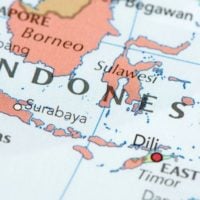Deadline: 3-Oct-23
The European Commission has announced its European Prize for Humanitarian Innovation to celebrate the humanitarian organisations, social enterprises, and companies that are developing technology to deliver better quality assistance to vulnerable people affected by natural disasters and man-made crises such as conflicts.
Scope
The prize recognises innovations and the organisations that develop them so that they may inspire other humanitarian actors to scale up actions that allow more effective and efficient delivery of humanitarian assistance. The prize will be awarded to the organisations that have developed and are deploying innovative solutions for the delivery of humanitarian aid, that are cost-effective, simple to use and re-use, scalable in different humanitarian aid settings and sectors such as shelter, water and sanitation, energy, heating or cooling, food, hygiene, protection, natural disaster risk reduction and health care and based inter alia on the application of digital technologies. Solutions should be tested and proven use cases of disruptive innovation, aimed at changing the paradigm and promoting more efficient humanitarian aid delivery and based on advanced technologies and services, including digital technologies demonstrating the added value and potential of one or more advanced technologies. The prize will be awarded to eligible organisations from across the EU and countries associated to Horizon Europe, who have transformed their ideas into disruptive innovations which provide assistance to vulnerable people affected by humanitarian crises.
Award Information
One first prize for the winner of the European Prize for Humanitarian Innovation of EUR 250 000, and two runner-up prizes of EUR 150,000 and EUR 100,000 for the applications ranked 2nd and 3rd.
Award criteria, scoring and thresholds:
- Award criterion 1: Innovative solution – An innovative solution tested successfully and safely in a humanitarian aid environment and on a sufficient scale, with a demonstrated potential of adaptability and scalability under different humanitarian aid settings and responding to the needs of those in a most vulnerable situation (taking age, gender, disability, and minority into consideration).
- Award criterion 2: Quality and sustainability – Quality and sustainability of the solution based on the application of advanced, technologies including digital technologies, by demonstrating improved robustness and quality of response compared to existing solutions and by taking account scarcity of resources and potential environmental impacts.
- Award criterion 3: Affordability and cost-effectiveness – Affordability and cost-effectiveness for beneficiaries and organisations responding to crisis, meaning a better value for money compared to existing solutions (considering notably the installation, operational and maintenance costs).
- Award criterion 4: Engagement with end users – Engagement with end users amongst affected populations to facilitate their involvement in the design of the solution, and perspective of a business case for (re)deployment of the solution at scale.
Expected Impact
Supporting the development and scaling of disruptive innovations with the potential to deliver a more cost-effective, sustainable and higher-quality aid delivery, leading to an optimised use of humanitarian funding and an enhanced response to urgent needs in a humanitarian aid settings, notably for those in a most vulnerable situation, in areas such as shelter, water and sanitation, energy, heating or cooling, food, hygiene, protection, natural disaster risk reduction and health care.
Timelines
- Indicative timeline for evaluation: October 2023 to January 2024.
- Information on evaluation results and award ceremony: Q1 2024.
Eligibility Criteria
In order to be eligible, the applicants must comply with the following criteria:
- Eligible applicants are any humanitarian non-governmental organisation, international organisation, and/or legal entity established in one of the Member States (including overseas countries and territories, OCTs) or a country associated to Horizon Europe.
- Applicants that have already received an EU or Euratom prize cannot receive a second prize for the same activities.
Submission and evaluation processes
Applications will be subject to a formal evaluation by a jury. If there are more than 50 applications, there will be a pre-selection phase to select the best 50 to pass to jury review. Otherwise, all applications will pass directly to jury review.
For more information, visit EC.









































